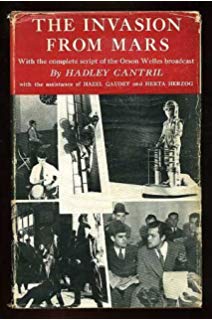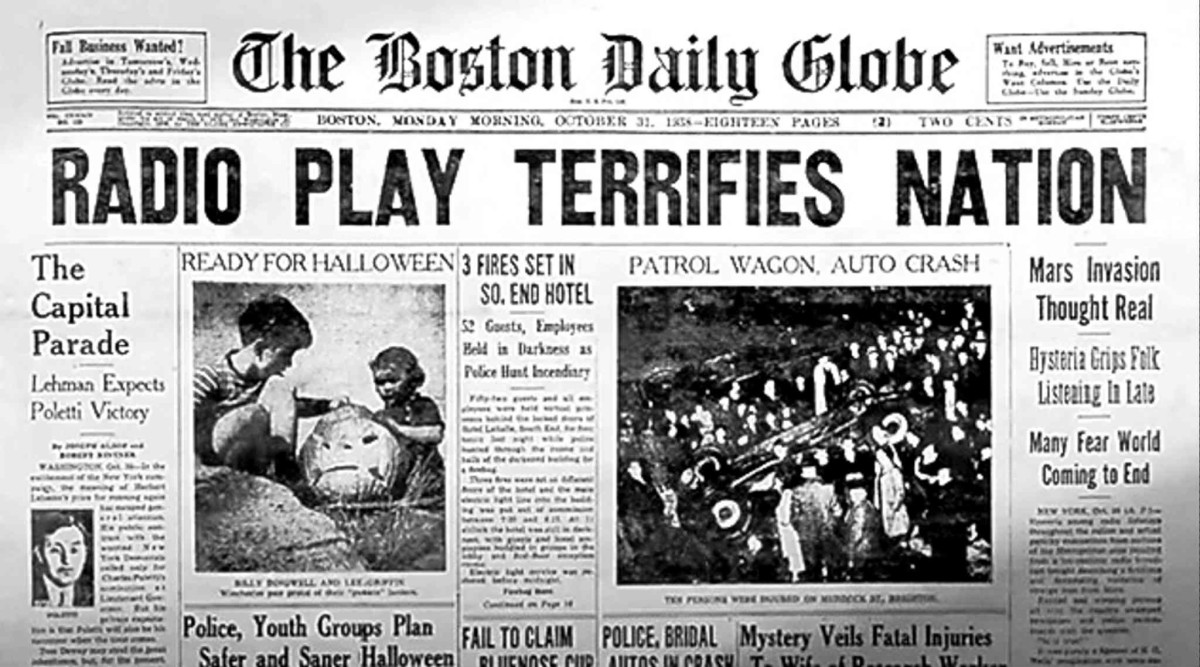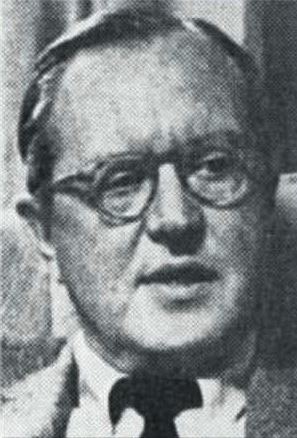Like millions of others, Hadley Cantril tuned into CBS radio and listened to the Mercury Theatre of the Air’s ‘War of the Worlds’ on Halloween 1938. The next morning he was surprised to read of the panic that the broadcast had precipitated.

He went to work to analyse this natural experiment. There must be quite a backstory about how he pulled it together so quickly but he did. He started the Princeton Radio Research Project with this initial study.
Because of the reaction on the night, others were also mobilised, and Cantril identified them and cooperated. Because of the public reaction the CBS had committed Roper and Gallup to do surveys. In addition, at least one government agency also did a study. To this mix, Cantril added about 150 interviews with listeners, and a national mail survey of about 1000. He also mailed a questionnaire to the managers of radio station to ask about local reaction. From this combination of data, the book offers some quantitative analysis leavened with case studies.
Cantril’s hope was to explain why the panic occurred. (Many a PhD since has disputed the definition of panic.)

That is, why did some people react in panic to the broadcast, while others did not. What distinguished the former from the latter. He tried demographic explanations, i.e., gender, age, education, social status. He tried geographic explanations. Were those closest to the fictitious New Jersey site more likely to flee their homes? He also looked for psychological factors in the readiness to believe.
The analysis is detailed but the exposition is clear. He found several types who were ready to believe the worst. It was this ‘readiness to believe’ that interested him as a psychologist.
For this reader the social and political contexts have much purchase. After the Spanish Flu epidemic, after the Great Depression, after the Dust Bowl, after the Munich crisis of the previous month, the times were apocalyptic. Bulletins on the radio, newsreels at movies, newspapers, all speculated on a new and terrible war with ever more incredible weapons. They were full of Nazi air armadas, the Italian use of poison gas in Ethiopia, and Japanese atrocities in China. What next?
With all this background someone who tuned into this broadcast and heard of strange weapons and poison gas in New Jersey might fill in the rest.
And all of those who were disturbed by the broadcast were invariably those who missed the introduction and also missed the station break in the middle. They either tuned in late or were not listening to the introduction. By the station break they were already alarmed and again missed it or misunderstood its comforting normality. These listeners received more than was transmitted.
For Cantril the most interesting group were those who tuned in late and heard of the catastrophe and did not panic, but rather did reality checks and concluded there was nothing to fear. They checked by reading the newspaper radio listings, by looking out the window, by going next door to speak to a neighbour, by telephoning the fire service, and so on. Of course, some who spoke to others in person or on the telephone found them in a panic and that contagion had an effect.
But then again, was an invasion of New Jersey anymore far fetched than a Japanese attack on Hawaii, which already in the planning in Tokyo to be followed by balloons released at sea to drift over the northwestern states and explode. Might not the meteor have been a disguised German missile? What became the V-rockets were already a gleam in the eye of some.
Older, more educated, and higher socio-economic status individuals were associated with reality checking but not decisively so. Some older, educated, and wealthy people were millenarians who believed it was god’s judgment on the evil ways of New Jersey. Well I did have a disastrous stay in a hotel — a Hilton at that — in New Jersey once, proving the unexpected happens there.
By the way, Cantril said reality checking was widespread among people who had ‘survived advanced schooling’ (location 1753 on the Kindle edition). Loved the phrasing.
Aside, a few listeners were Sy Fyians and they had no trouble either in recognising the genre or even the specific title. Reading does broaden the mind.

Later Cantril worked for the Nelson Rockefeller’s Office of Inter-America Affairs to gauge public opinion in Latin America during the early years of World War II and to combat Nazi propaganda there. He also conducted a small, clandestine project interviewing Vichy officials in Morocco in 1942. The conclusions of that latter study influenced Allied tactics in Operation Torch.
Skip to content
